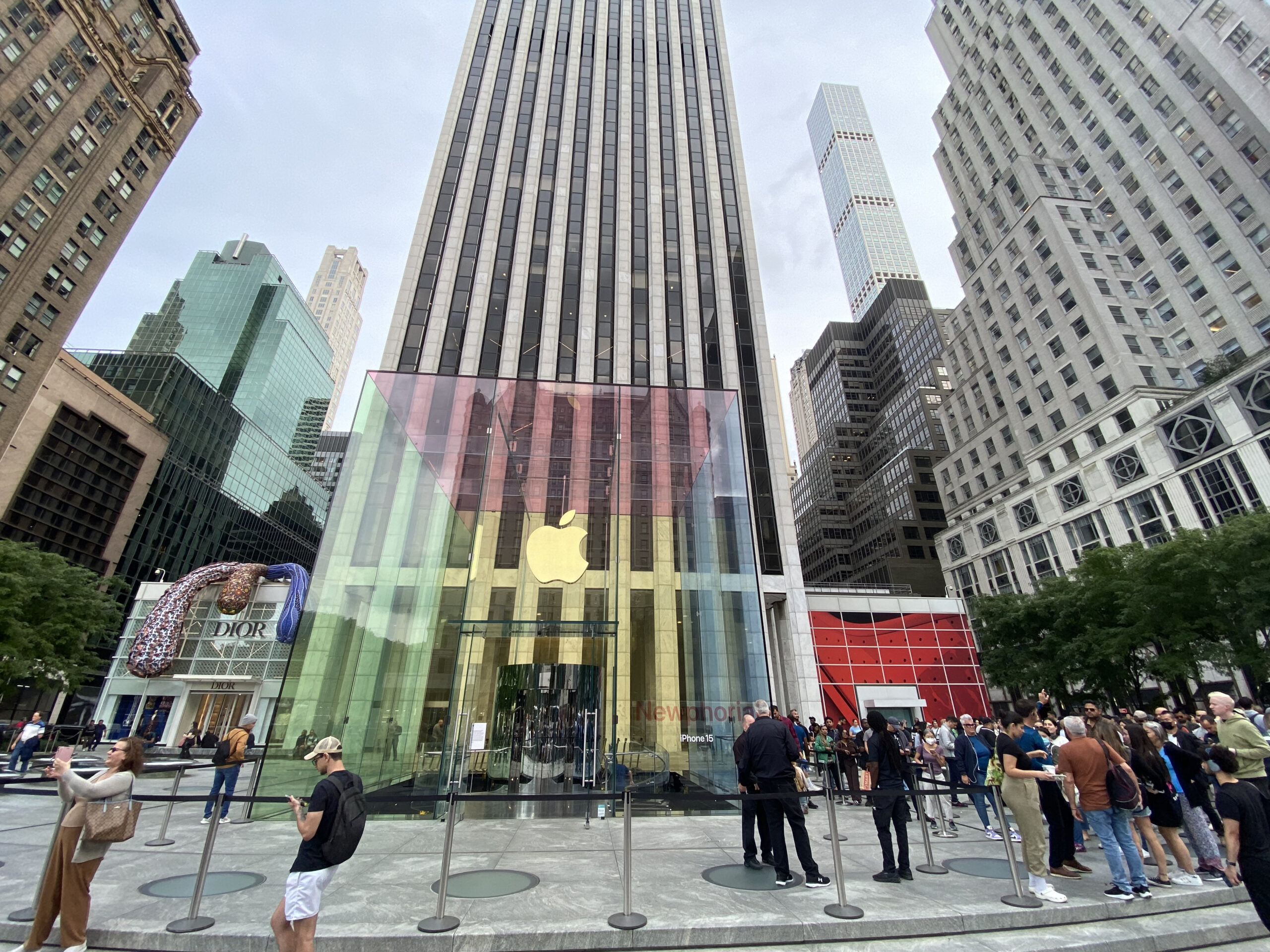Observations on the Economics of Mobile App Suite Bundling
A few weeks ago, the tech press lit up with several articles discussing Google’s recently revealed “Mobile Application Distribution Agreement” (MADA). The Wall Street Journal was others based their articles on claims surfaced by Ben Edelman — a Harvard Business School professor who consults for many of Google’s competitors — claiming that certain contractual terms surrounding Google Mobile Services were anticompetitive.
Specifically, Edelman contends that the following MADA provisions harm consumers:
Conditioning access to certain Google mobile applications (i.e Search, Maps, Play, YouTube, Gmail, Google Calendar, etc.) on a commitment to
(a) preload an integrated suite of applications on the device;
(b) give certain Google applications premium placement on the phone; and
(c) make Google search and Google network location provider the default options.
Unfortunately, most of the articles left many of the premises underlying Edelman’s arguments unchallenged. There is a lot going on here that needs unpacking and a lot of assumptions built into Edelman’s “analysis” that don’t pass a common sense test, let alone an economics test. I’ll tackle a few of the biggest problems in Edelman’s arguments below.
1) No Consideration of “Procompetitive Justifications” for Google’s Contractual Requirements
A key argument made by Edelman is that there are no “pro-consumer” benefits to requiring mobile device distributors to carry all the Google mobile applications if they want any of them. In fact, he states this pretty directly: “there are no plausible pro-consumer benefits to the Google MADA restrictions I analyze above.”
This is a bold, and extremely misleading statement. Note that Edelman does not contend that the consumer comes out worse on net. Rather, he takes the extreme position that there are no benefits at all, which is simply not true. There are several pro-consumer reasons for the contractual requirements Edelman is complaining about.
Let’s start with the most prominent reason. By requiring manufacturers to offer a full suite of Google services, including email functionality, mapping, search and access to an app store, Google presumably seeks to offer its customers a consistent, integrated experience available to users “out of the box” across different Android devices built by different Android manufacturers. Having apps that work well together make it easy to do things like open up your email, click on an address, and have it open up in a map. Google’s main competitors – Apple, Microsoft and Blackberry – all strive to provide users a similarly seamless, controlled experience that provides users with core functionality from the moment of purchase. Notably, all these providers also define the full set of apps preloaded on their devices, which Edelman, for some unknown reason, apparently does not consider anticompetitive. In fact, precisely because Android is open source, it has been repeatedly accused of being fragmented and constantly struggling to compete with its competitors on the “seamless experience” front. You can’t have it both ways – Android is criticized for being too open and thus fragmented but too closed and restrictive. Which one is it?
Why is it important to note “pro-consumer” efficiencies? Because those are exactly what make tying both pro-competitive and lawful. (At the very least, one would have to show that the “tying” or “full-line forcing” has anticompetitive effects that outweigh the pro-consumer, efficiency enhancing effects.) It is disingenuous to pretend there are no benefits to consumers from these provisions.
It is also somewhat ironic that Edelman calls this “an instance of full-line forcing” in an effort to classify this business strategy as an anticompetitive harm in potential violation of antitrust laws. In this instance, Edelman is using this term of art to imply that Google’s requirement that companies use all, or none, of its mobile applications as something that antitrust law generally looks suspiciously at. In fact, quite the opposite is true.
“Full-line forcing,” especially when there is no exclusive agreements or requirements to maintain a certain amount of inventory (not at issue in the case of Android), is rarely seen as a cause for competition concerns. In fact, courts have found that these arrangements can actually enhance competition because they present the consumer with more, not less, choice. As a result, the economic rationale behind these type of arguments has been repeatedly questioned, including by a memo submitted by the US Department of Justice to the OECD.
2) Carrying One Set of Mobile Does Not Foreclose the Carrying of Other Mobile Apps
In principle, the MADA allows a phone manufacturer to install certain third-party applications in addition to the listed Google Applications. For example, the phone manufacturer could install other search, maps, or email apps in addition to those offered by Google. But multiple apps are duplicative, confusing to users, and a drain on limited device resources. Moreover, in the key categories of search and location, Google requires that its apps be the default, and Google demands prominent placements for its search app and app store. These factors sharply limit users’ attention to other preloaded apps, reducing competitors’ willingness to pay for preinstallation. Thus, even if phone manufacturers or carriers preload multiple applications in a given category, the multiple apps are unlikely to significantly weaken the effects of the tie.
Much of Edelman’s argument, and the core arguments highlighted in the follow-on news commentary, is premised on the contention that preloading multiple competing apps isn’t a viable competitive option. However, he presents no evidence to support these conjectures.
Take my phone, for example. I have a Sprint Galaxy S4 made by Samsung. It not only came preloaded with Google’s mobile apps, which include Google’s App Store and content solution (Google Play), but it also came with “Samsung Hub” and “Sprint Music” and “Sprint TV & Movies.” Sprint’s “Discover It” widget (which features more prominently than Google’s search widget) on my phone also has an icon for direct access to Amazon and Amazon’s digital music store (not to mention that that it came preloaded with Scout, Telenav’s Navigation competitor to Google Maps). I have no less than 3 separate, pre-installed choices of where I am going to buy my apps, movies, music, games and other mobile content from, which is far more competitive than other mobile platforms – notably iOS, Windows Phone or Blackberry. Isn’t a multitude of options the very definition of competition?
Not to mention, Edelman’s definition of competition is perverse. He states that because other companies can’t pay for exclusive access, this is somehow anticompetitive.
First, they can pay for exclusive access; they just can’t cherry pick which Google services to include and exclude.
Second, it’s not necessarily true that allowing firms to pay to exclude everyone else’s applications and services from being preloaded is good for consumers (another bizarre and unfounded assumption embedded in these arguments). This is especially the case when, as in the United States, two carriers control more than 60% of the wireless market and also have control over what gets installed on their customers’ phones. It can also be convincingly argued that the MADA provisions require wireless carriers to offer the open alternative of Google Play, offering consumers a choice with respect to their own proprietary applications and services. This keeps the carriers in check.
(This is also ironic, as he states that this feature artificially inflates the price of mobile devices, without noting the effect Android has had on greatly decreasing the price consumers pay for mobile phones.)
And, third, users can download and install any apps they choose, and they can also easily reset or alter their default preferences. If they don’t want to use a preloaded Google application, they can easily hide it and install other apps they want.
Furthermore, Edelman’s claim that multiple applications are not feasible because they are duplicative and a drain on a phone’s limited resources is a stretch, to say the least. A quick peek at Verizon or AT&T’s smartphone lineup illustrates this point. The most popular models come with between 16 and 32GB of memory. Most applications are less than 60MB, with the average app size being 23MB. To put this in perspective, there are 32,768MB in a 32GB phone, so an average 23MB app would utilize less than 1/1400th of the device’s available storage.
3) Running Android Without Google Applications and Services is Not a Viable Option
Edelman claims that a manufacturer would struggle to offer an Android phone without using Google’s mobile services and that doing so would put the phone at risk of commercial failure. Once again, Edelman offers no evidence to support his contention and overlooks numerous examples of Android phones existing without Google’s mobile services. In fact, more than 70% of Android devices in China ship without Google mobile services and major competitors, such as Amazon, have used Android to power their mobile devices without installing Google mobile applications. Amazon even made Bing the default search on their Android Kindle Fire Tablets, which directly compete with Google’s own tablets. And just a few weeks ago, Russian search company Yandex announced at Mobile World Congress that Huawei and Russian device manufacturer Explay will be shipping Android devices with a suite of Yandex apps.
And last week, Nokia — which is in the process of being acquired by Microsoft — announced that it would be offering a line of Android phones with Microsoft applications and services replacing Google’s mobile applications. In fact, Frank Shaw, Microsoft’s Corporate VP of Communications, penned a blog post in which he stated:
“we’re pleased to see Microsoft services like Skype, OneDrive and Outlook.com being introduced on these [Android] devices. This provides the opportunity to bring millions of people, particularly in growth markets, into the Microsoft family.”
So, not only is it feasible to use Android without Google’s suite of applications, it’s already happening. Google’s competitors are using Android to directly compete with Google. This is part of the competitive beauty behind open source software, and one of the reasons DisCo routinely defends and champions open source.
This is also not the first time these complaints have surfaced. In fact, the Federal Trade Commission looked into them in 2011-2012 as part of their comprehensive investigation of Google and decided not to take any action. The Korean competition regulators also closed an investigation last year finding no wrongdoing. More recently these allegations were part of a dual-pronged complaint against Android filed by in Europe by FairSearch, a group of Google’s competitors. Besides the “full-line forcing complaint,” the same filing also accused Android of predatory pricing. Specifically, the complaint stated that the “below cost” distribution of Android “makes it difficult for other providers of operating systems to recoup investments.” It is hard to overstate how absurd and dangerous this charge is: if accepted by European authorities, it would have potentially made all commercial open source software builds anticompetitive. Not surprisingly, criticism of that complaint was widespread.
There is certainly more that could be found at fault with these arguments. However, for the sake of readers’ time, I wanted to focus on some of the core assumptions that underlie the “competition” concerns. Other commenters have focused on how these complaints have conflated an open source operating system (Android) with Google’s proprietary mobile applications or how proponents of these complaints simply dislike competition from open source software.
Although I don’t see much chance for these arguments to succeed with competition regulators around the world, it is dangerous to let them go unchallenged. Open source software, including Android, has been hugely disruptive to established markets, accelerated innovation and lowered prices for consumers.








